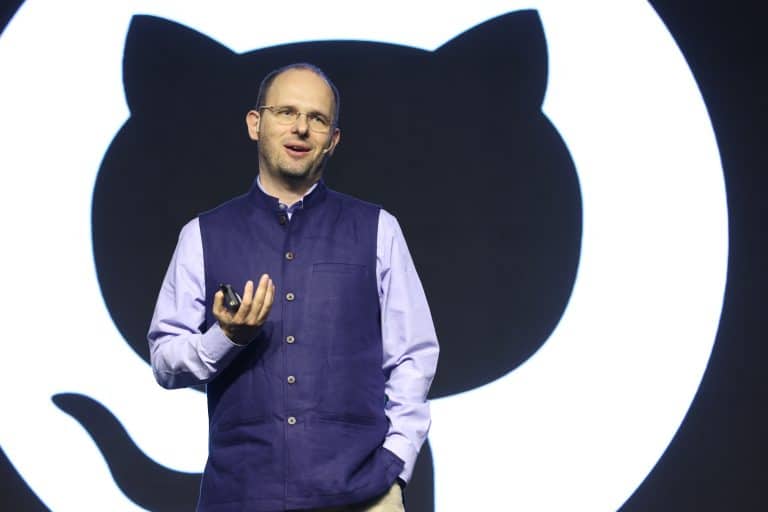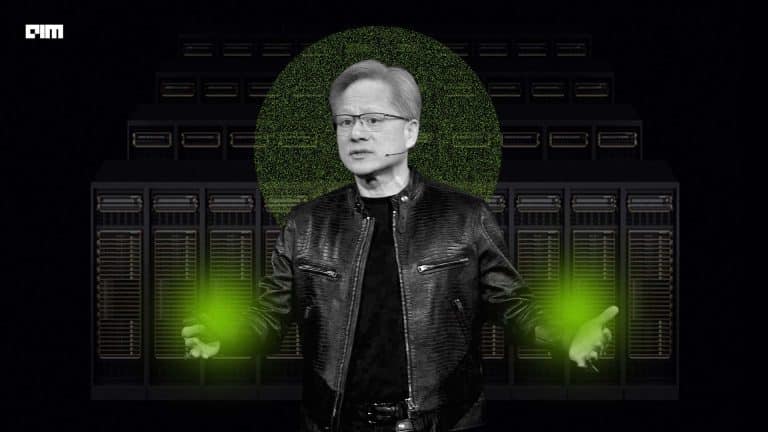At GitHub Constellation 2024 in Bengaluru, GitHub CEO Thomas Dohmke passionately spoke about the company’s deep connection with India and its vibrant open-source community. “You commit changes, your commit saves lives,” he said about the open source ecosystem of India.
Dohmke said that India stands at a pivotal moment, poised to lead the global software development community. Dohmke emphasised, “By 2027, India will overtake the United States as the largest software developer community on Earth.”
He stressed the importance of open source, likening it to a Jenga tower that relies on every developer’s participation. “The world depends on open source. The world depends on you,” he declared, reinforcing the critical role of Indian developers in driving innovation.
Addressing the misconception that India only consumes open source without contributing significantly, he highlighted India’s active participation in global open-source projects. He pointed out that in the open-source ecosystem, identity and background are irrelevant.
Interestingly, Zerodha CTO Kailash Nadh shared contrasting thoughts about India’s open-source ecosystem. “We have one of the highest concentrations of engineers and software developers in the world. But, if you look at the number of open source projects that come out of India, we would rank really, really, really low, and that is so disproportionate. It is not just sad, it’s also scary,” Nadh told AIM.
To foster this ecosystem and assist developers across India and beyond, it has partnered with Indian IT firm Infosys and opened the first GitHub Center of Excellence at Infosys, Bengaluru.
Meanwhile, Dohmke emphasised the collaborative nature of open source. “On a Sunday evening, somebody sent me a pull request. I don’t care who that person is. All I care about is that thing that we have decided to collaborate on… It doesn’t matter what religion, nationality, where I’m sitting in some organisational chart, none of that matters in open source,” he asserted.
GitHub Talks in Hindi
GitHub’s latest innovation, Copilot Workspace, exemplifies this spirit of collaboration. This new environment allows developers to move from issue to pull request seamlessly, all in natural language. Dohmke invited GitHub’s senior manager for international developer relations Karan M.V to demonstrate Copilot Workspace live on stage.
Karan showcased how Copilot could help create a 3D Lego brick on a webpage, highlighting its capabilities in understanding and generating code from natural language instructions. He also demonstrated Copilot Workspace’s ability to interact in Hindi in the Devanagari script, where the Copilot replied, explaining what the code was about.
Karan’s live coding session culminated in building a 3D Lego house, seamlessly transitioning from idea to implementation, all within the Copilot Workspace environment.
“You shouldn’t have to speak English to code, create, or participate in open source,” Dohmke declared. The barriers to entry are crumbling, making software development more accessible to a global audience. “Machines can now speak, understand and interpret nearly every major human language — Hindi, Portuguese, Indonesian, German, Kannada,” said Dohmke.
“Coding is as simple as the thoughts in your mind, and now you can see how natural language is the most powerful thing you have,” Dohmke stated.
Coding in Hindi on GitHub Copilot was also highlighted by Satya Nadella at Microsoft Build 2024. “Think about it — every person can now start programming, whether it’s in Hindi, Brazilian, or Portuguese, and bring back the joy of coding in their native language,” said Nadella.
Dohkme said that the age of AI has begun, and India’s developer community is at the forefront of this transformation. India currently has 13.2 million developers using GitHub, compared to approximately 20 million in the US. India also ranks second globally in the number of GenAI projects hosted on GitHub, following the US. The country hosts just under 30 million repositories.
“Developers are already 55% faster using Copilot,” Dohmke pointed out. This efficiency translates into significant time savings, allowing developers to focus more on creative and impactful aspects of their work.
India’s Love for Open-Source AI
Dohmke highlighted the convergence of India’s vast developer population and the emerging possibilities of AI, predicting it will supercharge the economy and fuel unprecedented demand for developers. This convergence is expected to simplify developers’ lives, allowing them to focus on innovation and creativity.
For decades, building software required understanding complex programming languages. Dohmke illustrated this with a reference to COBOL, a language from the 1950s still in use today. With tools like Copilot, the complexity barrier is being dismantled.
GitHub’s commitment to empowering India’s developer community is clear. As Dohmke aptly put it, “It all starts with open source. It all starts with you.”
The connection with India, Dohmke noted, is not just professional but also personal, recalling his visit to Bengaluru 16 years ago with his wife. “We loved our time here, and we almost moved to this beautiful country,” he reminisced, highlighting how India has held a special place in his heart ever since.
Quoting Gandhi, Dohmke ended the session, saying, “The future depends on what you do today. You are building your own future here in India.” He also compared the software race to the India and United States cricket match later this week. “You want to win that, right? And so you also want to win in software,” he concluded.
































